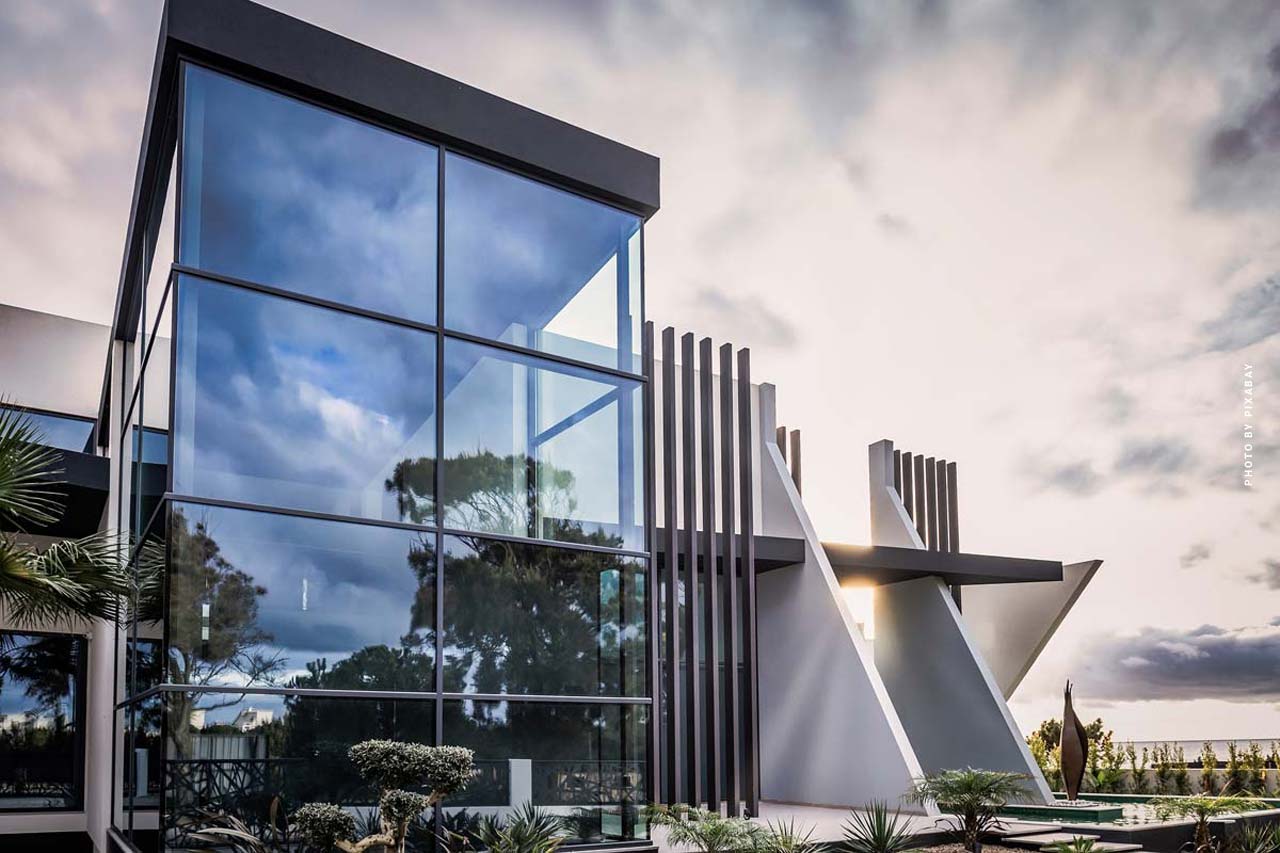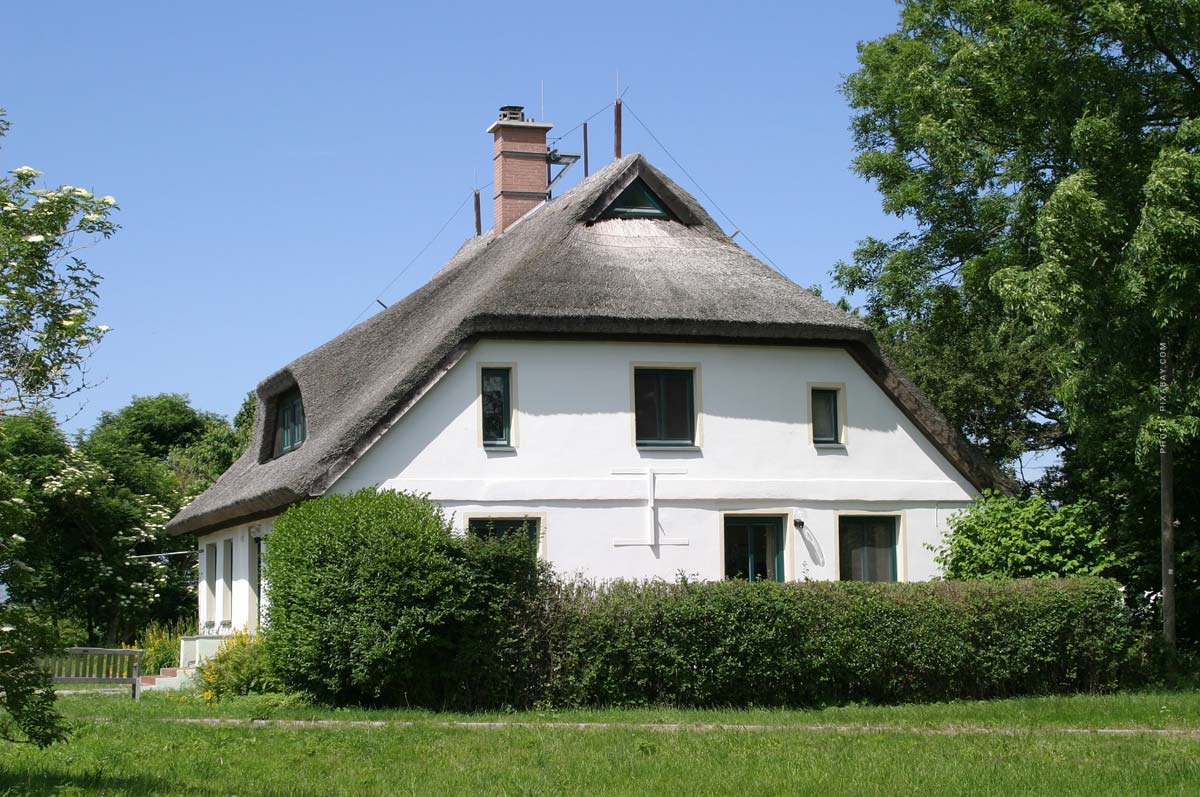Expert: Buy property or not? Berlin, Hamburg, Cologne, Düsseldorf and Munich
Many people play with the idea of buying a property in one of the popular cities. These cities include Berlin, Hamburg, Cologne, Düsseldorf and Munich. But to find the suitable real estate is not at all so easy and as a layman it is often difficult to evaluate whether it is worthwhile to invest in an apartment or a house as an investment. We did an interview with an expert for you.
Interview with real estate expert Jan Rickel from IHV – Die Immobilien Makler.
Capital investment – Is it worth it?
FIV: We met last month to discuss house sales in general and the future of living. Today we wanted to know more about the hotspots in Germany. We all know the news of rising real estate prices in Berlin, Hamburg, Cologne and especially Munich. Rents, but also land and purchase prices are exploding here. Many people are thinking about investing in real estate – sooner or later. But is real estate a worthwhile capital investment at all?
That depends. It depends on how long I want to hold this investment. In the long run at least a real estate is a very good investment. I’ll tell you a personal story: When I wanted to buy a 2-room apartment in Frankfurt more than 20 years ago, gab´s had a lot of discussions with my parents and friends. They thought I was crazy in view of the returns that could otherwise be earned on the market (time deposits, gold, stocks, etc.). With a rental yield of 5% at the time, one looked rather old at that time alongside the usual forms of capital investment.
FIV: And then why did you still get into real estate?
Because the value of this apartment has risen dramatically in the following years. And that was already apparent at that time! Actually, many people, including myself, initially believed that the price increase on the housing market was coming to an end so slowly but surely. But the opposite was true. Apart from the one or other dent or two, the value development of real estate has constantly risen. So I could sell this apartment today for a multiple of the original price. I paid the loan from then via the rent and at the same time my small equity capital invested at that time grew without my involvement. And this is far higher than with the vast majority of share packages or other conventional investments.
FIV: And that works everywhere?
That would be too good to be true! Here the location of the apartment or house is very important. If I had bought a big house somewhere in the countryside, far away from all the hustle and bustle, then things would probably have turned out quite differently. This does not mean that a house in the country is basically a bad investment. In the so-called “fat belt” of conurbations, for example, property prices have also developed rapidly. If the location of the purchased property is regarded as very desirable for living, then not much can go wrong in the long run and the one or other “dent” in the value development is to be absorbed. By the way: it is well known that share packages or funds also have one or the other bend in their performance. The decisive factor is the so-called investment horizon, i.e. the time I give my capital investment to develop its value. Fast money cannot be made in the real estate business. In the long term, however, it is a very solid and secure investment.
Is there an end in sight?
FIV: But isn’t the boom slowly coming to an end?
Of course, I can’t predict that for sure. As I said: even 20 years ago, many real estate experts believed that the price trend for purchase and rent had come to an end. That was not true, as we have seen to this day. How the prices for the purchase of real estate – and by the way also for the rent level – change depends above all on how much living space will be demanded in the future and what new living space can be created. In any case, I cannot see any saturation of the real estate market in the long run.
The question remains: how is the interest rate level developing? If it becomes more expensive to borrow money to buy real estate, then the real estate market cools down again. And then we are again at the “dents” mentioned above. The investor has to endure them.
FIV: Should I buy a property now, or should I wait until prices fall?
If I knew if and when prices would fall, I would probably advise you to wait and see. Especially if the price reduction for the property would not be eaten up by significantly higher interest rates in the financing. But since none of us has the proverbial glass ball, I advise: calculate exactly what I can afford and then look for and buy the matching object in a sought-after location.
Real estate market in the big cities
FIV: This brings us to the areas in Germany where real estate values have been rising for a long time. Let’s look at the four top regions: Berlin, Munich, Cologne and Düsseldorf. Let’s start with Berlin. How do you rate the real estate market in the capital?
It is unbelievable how Berlin has developed in recent years. Apartment houses were then sold for a button and a clicker because nobody wanted them and now domestic and foreign investors are ripping themselves off for real estate in our capital. Berlin is hip and also “the place to be”. For many young adults it is the coolest city in the world, even people from other European and non-European countries are drawn to Berlin.
Which district is currently “in” changes in Berlin almost as fast as in any other major German city. In the meantime, the boom has also affected the suburbs. Reinickendorf, for example, increased real estate prices by about a quarter last year. This is insane! Even previously unattractive districts such as Marzahn-Hellersorf or Spandau have seen significant increases in purchase and rental prices. This in turn means that municipalities in the immediate vicinity of Berlin have a much higher population growth rate than Berlin itself. Potsdam, Teltow, Bernau or Falkensee are on the rise. It remains to be seen whether prices there will develop so dramatically.
Increasing property prices – buy or wait?
FIV: How do you rate the rising prices in Berlin and the surrounding area? Should we buy a property or wait and see?
I believe it will be a long time before the market in Berlin and the surrounding area calms down. So now is certainly a good time to buy, because in the long run the prices there continue to rise and now the interest rate level is still low.
FIV: Let’s go south, to Munich. Munich is regarded as the hotspot for rising prices – regardless of whether it is a condominium or a detached house in the suburbs. The Handelsblatt reports a price development of +47 percent. What makes the Bavarian metropolis special and how is the market developing here?
As long as the growth of the corresponding economic sectors in Bavaria does not slow down, experts will be sought there and they in turn will be looking for housing. Especially when the specialists of the respective industries, and this is still the IT environment and other service companies in Munich, do not find jobs elsewhere. Experts estimate that by 2035 there will be about 350,000 new arrivals in the greater Munich area. Municipalities such as Dachau, Fürstenfeldbruck or even Landsberg am Lech are already attractive as places to live for people who commute daily to Munich.
The pressure on property prices and rents there is also being increased by the still high recreational value of the region. For many people, the proximity to the mountains and the Mediterranean Sea is much more attractive than – say – the North Sea or Holland. Ultimately this means that in the Munich area, salaries are usually higher than elsewhere in Germany. However, the prices for buying or renting apartments usually eat up this “surplus”. Especially for families this is a real problem…
Purchase real estate in Munich
FIV: Against this background, what do you think about buying real estate in Munich?
Anyone who gets one and can pay for it should buy safely from the perspectives. In relative terms, however, the performance and rental yield in other selected areas of Germany is by no means worse than in Munich. I’m thinking of Berlin, the Rhine-Main area or the Cologne-Düsseldorf axis.
FIV: You didn’t mention Hamburg now. Is there a reason for that? Away from publicity, do objects like the Hamburg Philharmonic generally enhance the city or just a part of it?
Sure. Hamburg has also experienced a steep development. A few years ago, the image of the city was still rather grubby, but a lot has happened there – especially with the Hafen-City and many other urban development projects. Hamburg as a whole is far removed from price developments such as Munich.
Of course, construction projects such as an Elbe Philharmonic Hall enhance a city as a whole. Not alone, though. Overall, cultural institutions, but also other large “lighthouse projects”, promote the image of a city. However, I would like to see the money more often in many smaller developments. In all major projects, for example, the individual quarters must not be forgotten. Of course, it’s nice to see this building from the Elbe. However, the renewal and maintenance of the parks, the upgrading of playgrounds, the subsidization of kindergartens in the individual districts will lead more to the whole city developing a positive pull They will become more attractive for the people who now live there and for newcomers. This means growth in the number of inhabitants, tax revenue, etc. That is why, to return to the question once again, I am rather sceptical about investing in a major project of this scale.
Hamburg from above – The Hanseatic City
Purchasing real estate in the Hanseatic City of Hamburg
FIV: Hamburg is not that far away from the sea. The North Sea and Baltic Sea are popular holiday regions. So if I buy a property in the north, would I rather buy it in the countryside than in a holiday home or in the city itself?
The same applies to Hamburg as to Berlin and Munich. Often even the prices per square metre and the expected rents are directly comparable. Using an apartment in the city as a holiday home can be problematic. Many cities have put a stop to the rental of holiday homes (Airbnb etc.). The risk of rent loss would be too high for me. The holiday home in the countryside only makes sense where there are really good occupancy rates – and best of all throughout the year. In the “Alte Land” or in “Vierlanden” – to name just a few areas in the direct vicinity of Hamburg, this is certainly not the case. Moreover, one should be a little better versed in the tourism rental business if one does not want to suffer a shipwreck with his investment in a holiday property by the sea. I therefore advise most people against doing something like this.
FIV: We still have the Cologne / Düsseldorf region. There are currently about two million people living there. Buy or better rent? What are your tips for Cologne and Düsseldorf?
Who can, should buy! Especially Düsseldorf and the surrounding area are not much behind the price development compared to Berlin and Hamburg. However, the following applies to both cities: take a close look at the district in which the property is located. In Cologne and Düsseldorf, it has not yet been noticeable that former “shadow districts” are becoming the absolute in-city districts overnight. In Düsseldorf, Oberkassel is still on the list as one of the “top addresses”, while Eller and Flingern are rather undervalued. In Cologne, the most sought-after districts have been called “Rodenkirchen” and “Bickendorf” for many years. “Chorweiler” or “Nippes” are rather something for connoisseurs of the scenes…
FIV: What is the difference between the attractiveness of the two cities?
I’m sure you don’t expect me to answer that seriously. There is still no binding answer to this fundamental question of Rhenish existence. Maybe this much: in both cities there is delicious beer and nice pubs.
Thank you so much for the interview.
Interview with real estate expert Jan Rickel from IHV – Die Immobilien Makler.










